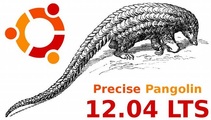 Anyone from an older version with a working dnsmasq setup must have noticed that after a dist-upgrade to Ubuntu Precise 12.04 dnsmasq is having trouble on startup. The reason is simple. On the upcoming 12.04 Desktop release, Network Manager is starting its own dnsmasq instance which is binded on the localhost ip (127.0.0.1) and is responsible for making sure all LAN, WAN or even VPN connections have a proper DNS handling from a routing prespective. No caching at all! For more info on that change read this blog post.
Anyone from an older version with a working dnsmasq setup must have noticed that after a dist-upgrade to Ubuntu Precise 12.04 dnsmasq is having trouble on startup. The reason is simple. On the upcoming 12.04 Desktop release, Network Manager is starting its own dnsmasq instance which is binded on the localhost ip (127.0.0.1) and is responsible for making sure all LAN, WAN or even VPN connections have a proper DNS handling from a routing prespective. No caching at all! For more info on that change read this blog post.
As already described, NM’s dnsmasq instance listens on localhost. With a little help from the resolvconf package (this is also new to 12.04 Desktop), the /etc/recolv.conf file will look like this.
# Dynamic resolv.conf(5) file for glibc resolver(3) generated by resolvconf(8)
# DO NOT EDIT THIS FILE BY HAND -- YOUR CHANGES WILL BE OVERWRITTEN
nameserver 127.0.0.1
The previous resolv.conf entry means that all DNS requests from your Desktop will be headed to the local dnsmasq instance started by the Network Manager.
If you are a power user and you want your dnsmasq custom configuration to be NM dependent all you have to do is comment out the “dns=dnsmasq” parameter in the Network Manager’s configuration
sudo vi /etc/NetworkManager/NetworkManager.conf
and restart the NM service
sudo restart network-manager
After that, try to restart your previously configured dnsmasq and see the results. Everything is in place now!
- /etc/resolv.conf is no longer dependant on resolvconf package and is updated based on the DNS entries of each connection in the Network Manager
- dnsmasq can not bind freely on the localhost (127.0.0.1:53)
Last but not least, here are some dnsmasq configuration parameters I found helpful until now.
You should use them in “/etc/dnsmasq.conf” (remember to edit it as root with sudo).
# Listen only on localhost
listen-address=127.0.0.1
bind-interfaces# The default is 1000 dns entries to be cached.
cache-size=10000# Make sure that DNS requests going out contain a valid domain
domain-needed# The resolv file which dnsmasq will check for its default nameservers
# The syntax for that file is the same as for classic resolv.conf
resolv-file=/etc/resolv.dnsmasq# Do not try to check the default /etc/resolv.conf file for any reason
no-poll# All DNS requests for domain.prive, its subdomains and the reverse maps
# should be sent to the proper DNS. Adjust to your environment.
server=/domain.prive/10.0.0.1
server=/10.in-addr.arpa/10.0.0.1
Restart the dnsmasq service and do some DNS tests to make sure it working as expected
sudo service dnsmasq restartdig http://www.google.com @127.0.0.1
dig blah.domain.prive @127.0.0.1
…
If the previous dig results have proven to be ok then edit your Network Manager LAN connections and make sure they have dnsmasq as a primary DNS server. The address is 127.0.0.1.
To monitor dnsmasq’s statistics (cache usage, etc) all you have to do is send the process a USR1 signal and the statistics will be outputed in syslog.
sudo kill -USR1 `pgrep dnsmasq`
sudo less /var/log/syslog
The output should similar to that bellow
Mar 31 18:55:06 pc dnsmasq[16919]: time 1333209306
Mar 31 18:55:06 pc dnsmasq[16919]: cache size 10000, 0/2877 cache insertions re-used unexpired cache entries.
Mar 31 18:55:06 pc dnsmasq[16919]: queries forwarded 1437, queries answered locally 907
Mar 31 18:55:06 pc dnsmasq[16919]: server 194.219.227.2#53: queries sent 0, retried or failed 0
Mar 31 18:55:06 pc dnsmasq[16919]: server 10.32.54.4#53: queries sent 64, retried or failed 32
Mar 31 18:55:06 pc dnsmasq[16919]: server 193.92.3.11#53: queries sent 1118, retried or failed 2
Mar 31 18:55:06 pc dnsmasq[16919]: server 193.92.150.3#53: queries sent 360, retried or failed 0